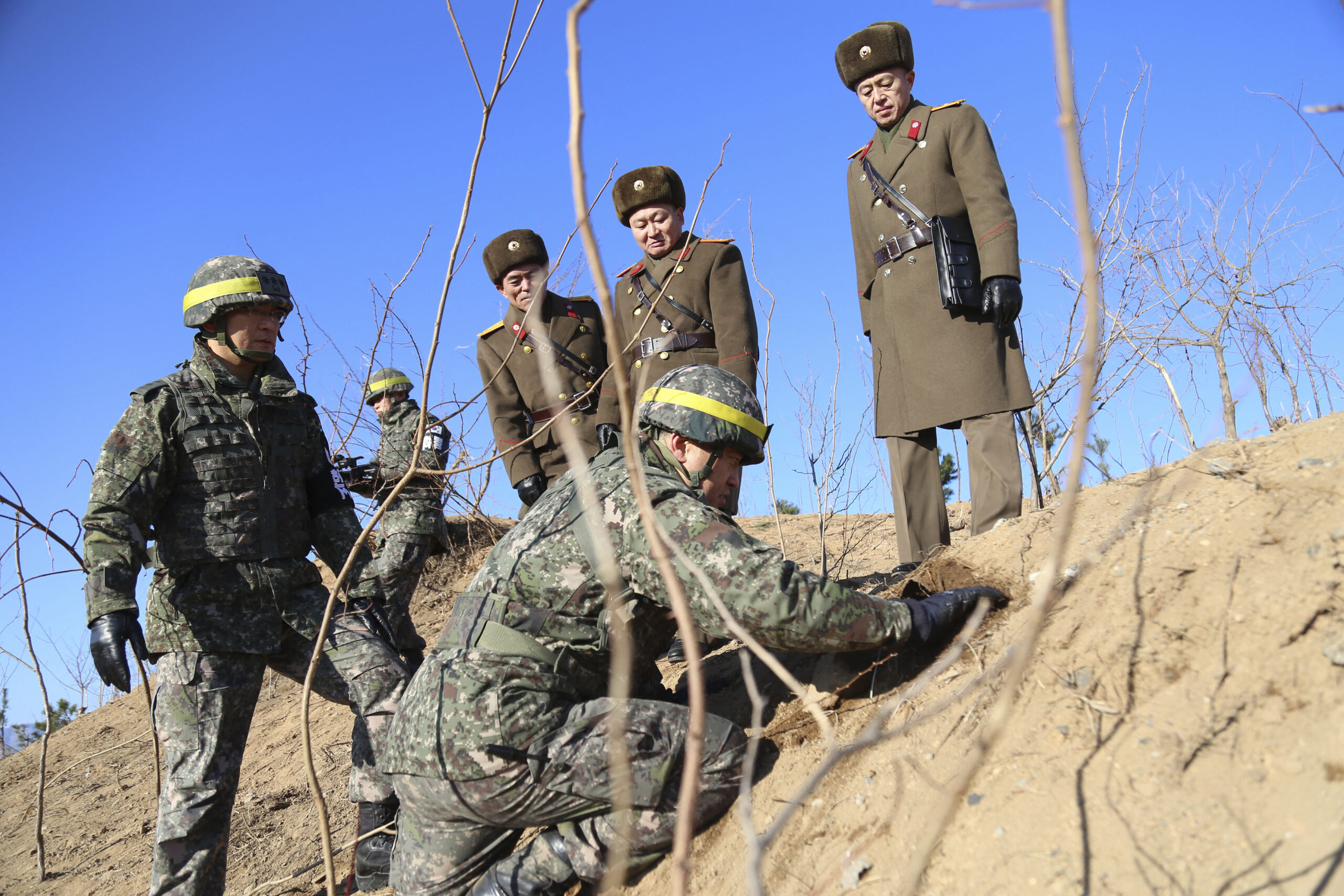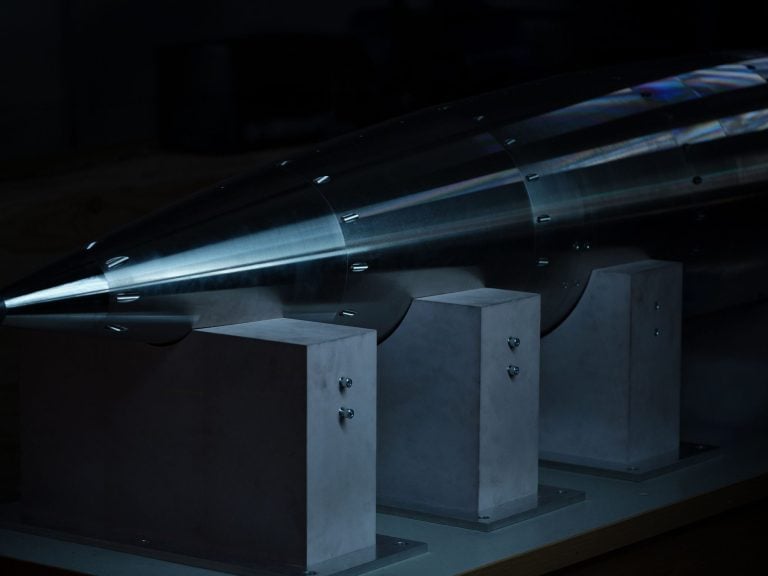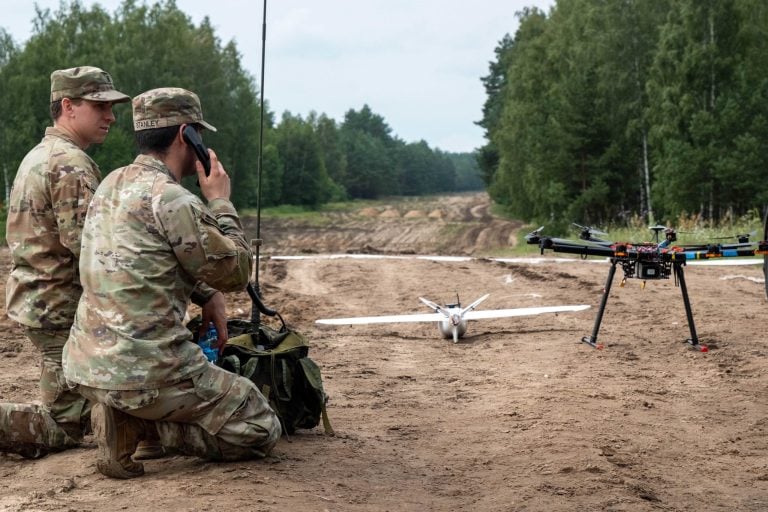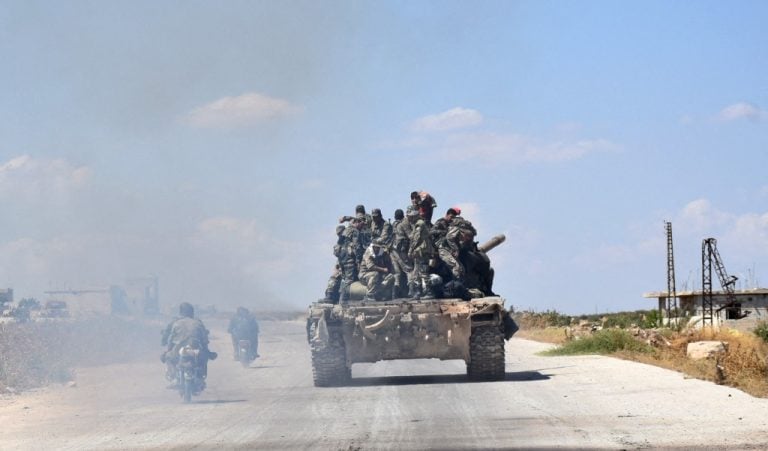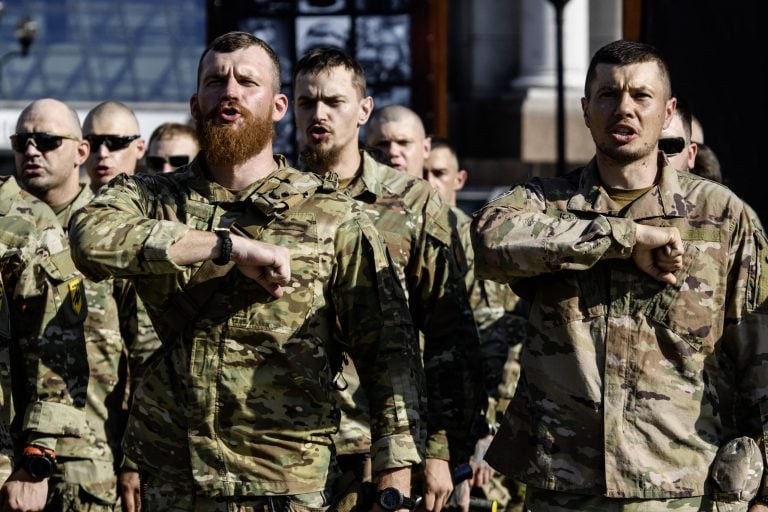In a tense development on the Korean Peninsula, South Korea’s military reported that its forces fired warning shots on Tuesday after approximately ten North Korean soldiers briefly crossed the heavily fortified border separating the two nations. The incident occurred around 5 PM local time in the demilitarized zone, a region known for its extensive fortifications, including landmines and dense vegetation.
According to a statement from Seoul’s Joint Chiefs of Staff (JCS), the South Korean military responded to the incursion with a warning broadcast before discharging warning shots, prompting the North Korean soldiers to retreat back north. The JCS emphasized that it is closely monitoring the movements of the North Korean troops and is prepared to take necessary measures in response to such incursions.
Reports indicated that some of the soldiers who crossed were armed and donned bulletproof vests, raising concerns about the potential for escalated confrontations. This incident is particularly concerning as it comes amid a backdrop of heightened military activity and strained relations between the two Koreas.
Last year, North Korean troops were reported to have made several minor incursions across the border, which South Korean officials had characterized as likely accidental. However, the situation appears more precarious now, with South Korea’s military announcing on Monday that it had detected unusual activities by North Korean forces. These developments follow a politically charged moment in South Korea, where President Yoon Suk Yeol was recently removed from office, prompting snap elections scheduled for June 3.
The current climate between the two Koreas is one of the most strained in years, and North Korea has a history of conducting missile launches or provocations coinciding with significant events in South Korea. Recently, around 1,500 North Korean soldiers were observed carrying out land-clearing operations and installing barbed wire along frontline areas, leading JCS spokesman Lee Sung-jun to suggest that tactical training or evaluation inspections could be imminent.
Following the turmoil of President Yoon’s removal, South Korea’s military leadership has stressed its readiness to respond to any potential actions from the North. The two Koreas remain technically in a state of war, as the 1950-1953 Korean conflict concluded with an armistice rather than a formal peace treaty.
The ongoing deterioration of relations has seen North Korea take aggressive steps, including the demolition of infrastructure like roads and railways that connect the two nations, as well as an increase in border fortifications through the laying of new mines. In addition, both countries have exchanged accusations over the launching of balloons across their borders and engaging in hostile broadcasts directed at each other.
Springing from recent geopolitical developments, there has been growing unease regarding the strengthening ties between Pyongyang and Moscow, particularly after they formalized a mutual defense agreement last year. Reports indicate that North Korea has mobilized thousands of soldiers alongside military supplies in support of Russia’s operations in Ukraine, further complicating the security dynamics in the region.
